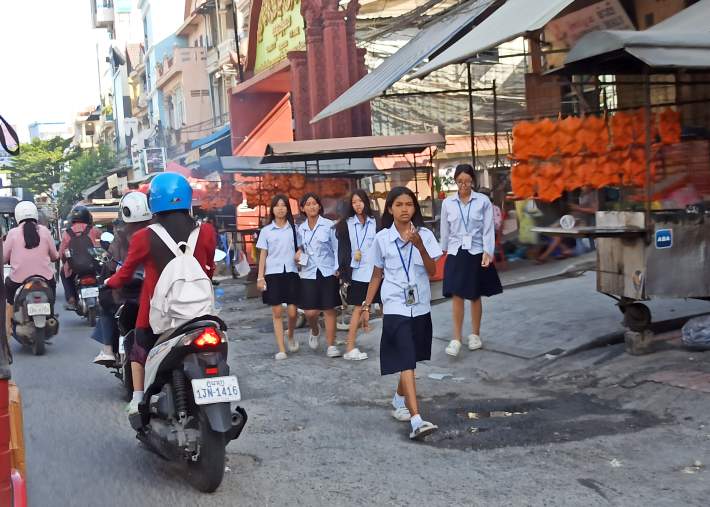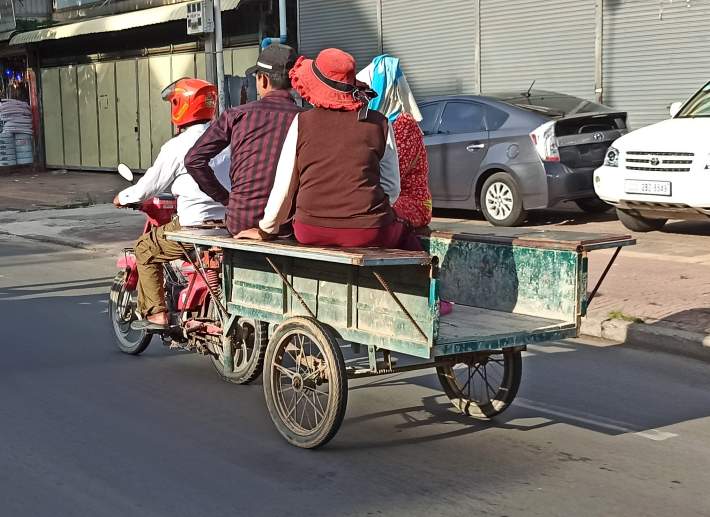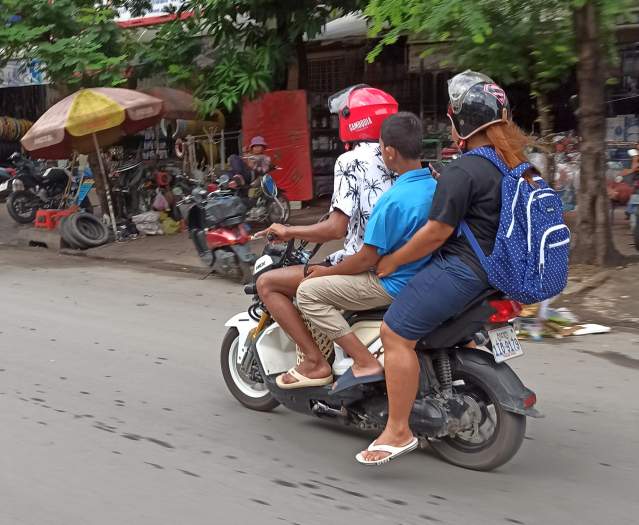
That’s a rather big load for a rather small moto!
Charlie Dittmeier's Home Page

That’s a rather big load for a rather small moto!
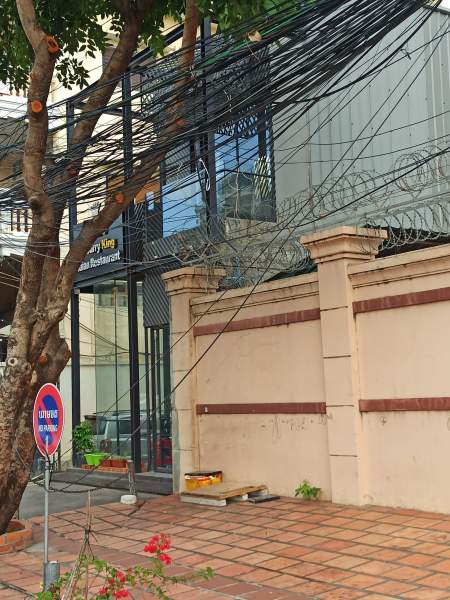
One photo target of many tourists to Phnom Penh is the mass of overhead wires above the city streets–and on the sidewalks, as in this photo. There are hundreds of wires stretching along almost every thoroughfare–and probably half of them are dead. New wires go up constantly. Old wires are rarely taken down. They’re removed only when they break and dangle in the streets. Notice the scars on the tree where limbs were amputated to make room for wires rather than running the wires in a less obtrusive fashion.
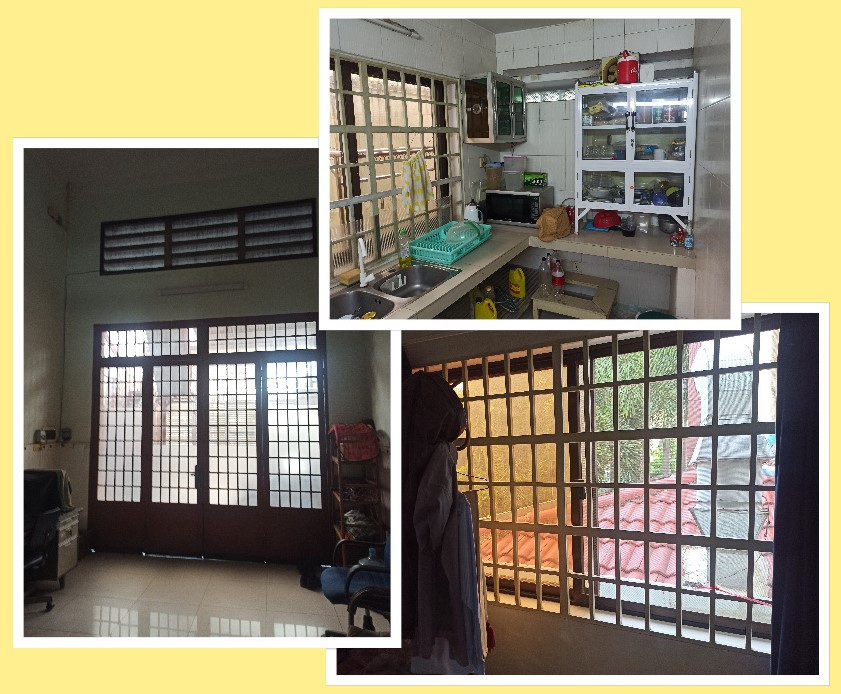
One characteristic of houses in the cities in Cambodia is that all the windows and doors are barred. On the left above is my front door. On top is the kitchen. The lower right corner is in my bedroom. None of the window bars or grills open. If there is a fire and the door is blocked, it’s bad news for the room occupants.

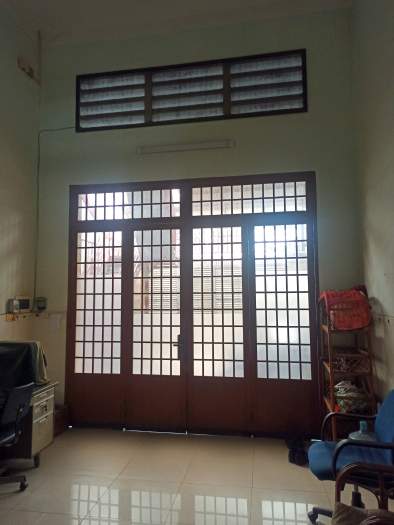
This is the front room of the shop house where I am living. It is two stories tall. At the other end of this room is a mezzanine room looking down onto this floor. That is for the shopkeeper to keep watch over his stock when the ground floor is set up as a shop or business. I use that mezzanine room as an office.
The point to notice here are the vents over the front doors. Everything in the house is designed to let air circulate and flow through. Electricity, e.g., for fans, is quite expensive now. 25 years ago, when this house was built electricity was still in its infancy so houses were “cooled” by increasing air flow.
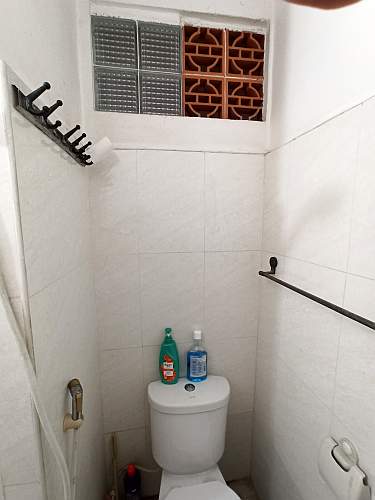
You might expect houses in different countries and different climates to be built differently, with sometimes striking dissimilarities.
Notice this difference in a modern Cambodia bathroom. There is an aperture in the wall and half of it is glass brick. That is to let some light into a closed room when there is no power. Or when the homeowner doesn’t turn on the electricity because it’s so expensive.
The other half of the aperture has ventilation bricks installed, to let air circulate through this room and the rest of the house for cooling.
This particular aperture opens into an inside corridor, over the stairway coming up from the first floor.
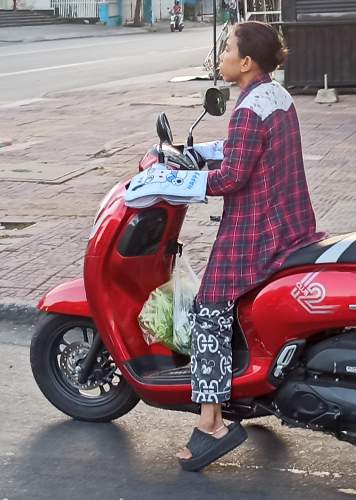
Notice this woman on a motorcycle at 6:00 AM. She’s not wearing a helmet but she’s wearing some…what are they?….on her hands. They’re not gloves but Cambodian women will go to great lengths to cover any exposed skin so that it isn’t darkened by the sun.

The silver gate is the front of the house where I live and this is the first time the flood waters have reached our gate. The intersection where the children are playing floods frequently but the water usually stops by the boy in the red shirt. I wasn’t home for the rainfall yesterday but it must have been really heavy.
